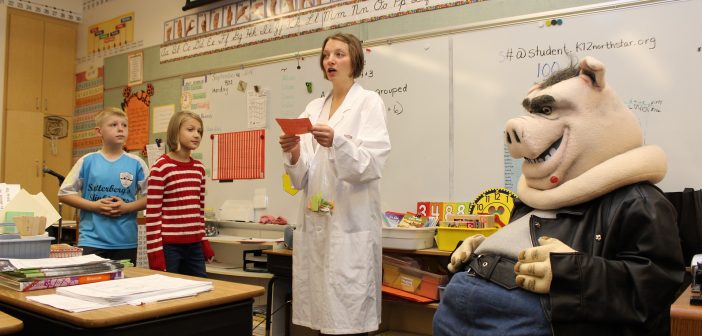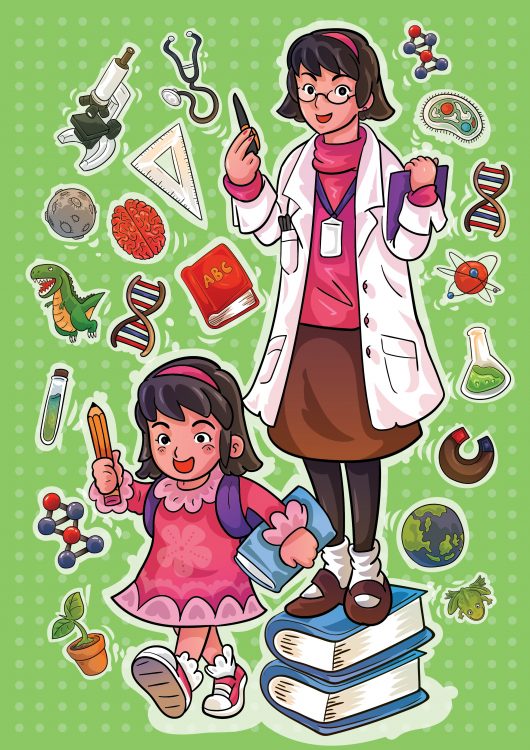Science is responsible for most of the discoveries and inventions around us, ranging from gravity to medicines to automobiles. The importance of science education is undeniable, and parents and teachers must encourage young children in learning science. Science is based on curiosity, and kids by nature are curious and eager to understand and know more about the world around them. Teaching science to young children or providing them with primary science tuition will help them better understand everything happening around them.
Teaching Science to Young Children
Young children, particularly those between the age group of three to eight, learn science best through hands-on or by “doing things,” so to speak. Children are naturally very curious and love exploring and experimenting with things around them during the early childhood years. This age provides the perfect opportunity to nurture the love of learning science in children as well as develop a passion for learning overall. Furthermore, allowing young kids to experience things by themselves will increase and encourage their curiosity. Soon you will find that no matter what they see or find, everything will become an important science investigation to them!
Nurturing the curiosity in young kids is very important when it comes to the development of a child’s thought process. Teaching science to young children will also encourage them to find answers to their many questions, which often results from their curiosity.
By amassing information about the world around them, science helps kids to understand the world and make sense of all things happening around them. It gives them the chance to come up with abstract ideas, which is critical for their thought process. It’s challenging for young children to grasp abstract thoughts and concepts unless they experience it hands-on or through their senses. Hence, it is imperative for teachers to focus on science lessons revolving around things that kids can see, hear, taste, smell, and touch during primary science tuition. As the children are continuously immersed in science, they begin to discover all kinds of new and different things around them and start becoming curious about how things work as well as about themselves and others.
What The National Science Teachers Association (NSTA) Thinks About Teaching Science to Young Children
Referencing children aged 3 to 5, the National Science Teachers Association’s (NSTA) wholeheartedly advocated for early childhood science education. It stated, “The National Science Teachers Association (NSTA) affirms that learning science and engineering practices in the early years can foster children’s curiosity and enjoyment in exploring the world around them and lay the foundation for a progression of science learning in K–12 settings and throughout their entire lives.”
Additionally, NSTA believes children should be introduced to science even at age 3. The body thinks it helps them explore and understand the ABCs of the world around them. This can be achieved through exploratory play, primary science tuition, and introducing children how they can engage in conceptual learning and share with others what they learned. In the case of infants and toddlers, parents can do this by introducing them to sand or water and later encouraging them asking questions that begin with “why.”
Tips That Will Help Young Children Learn Science
Here are some tips that will help your children love science and start learning science from an early age. Let’s get started:
- Explore And Keep Exploring!
Science is omnipresent. If you want to be more curious and love science, don’t stop exploring. Even a visit to the park or just having a snack in the yard will expose many things giving them a ton of opportunities to learn. When exploring, take into consideration your kid’s personal interests, personality, and social habits. Moreover, keep them engaged in activities that will make them feel comfortable but excited.
- Encourage Your Child To Question Their Surroundings
Whether you’re inside your home or outdoors, always encourage your child to ask questions of what they observe around them, and then discuss it. If they ask something you’re unsure of, research it, and learn about the subject together. You don’t have to be “Mr. Know It All”—in fact, as a parent, you can be a role model to your child when they find you were all curious and asking questions.
- Make Science Learning Fun
Learning science is cumulative, which means your child’s science knowledge will only increase on top of what they already know. So, start enjoying learning science at home, talk about science-based topics daily, play science games and puzzles, bake a cake, watch constellations with the whole family, and so on. The point is to make science fun and looking about opportunities that will allow you to discuss science.
- Make Good Use Of Your Electronic Devices
We all have smartphones, cameras, and other electronic devices lying around, so why not take advantage of them? Ask your child to take pictures of a resting butterfly, record dog or frog sounds, and download apps or visit websites that explain them more about a particular creature or phenomenon. Furthermore, you can use any item at home to experiment and explore about things happening around them. There is no need to spend money on buying science supplies.
- Buy Science Supplies
If you find your child interested to learn more about science, consider investing in a few pieces of equipment such as an inexpensive microscope, for example. You can also make fun toys that will encourage them to go outdoors and explore their surroundings. We recommend you get astronomy kits, ant farms, aquariums, kitchen science kits, etc.
- Tell Your Children Explorations Are Messy
Whether your kids are playing outdoors or doing some explorations with mud and water, tell them it is okay to get dirty, which they most likely to get. To make things easy and less stressful for you, dress your children in old clothing.
Final Thoughts
In addition, to exploring and encouraging science learning in school and family, it is equally as important to invest in your child’s willingness to learn science. If you’re living in Singapore, you’ll notice that parents are really serious about their kids’ education. They’ll do everything possible to make sure that their children get into the best schools and universities and take private tuition from the most popular tuition centers in Singapore or super tutors in Singapore. Furthermore, there are plenty of fun and interactive programs that will help them develop a strong foundation in science. From environmental science to life sciences to earth science, if you see your kids expressing his or her interests in these subjects, motivate and learn together.






I agree that we should teach science from childhood. But no matter how parents try not to give everyone a good education. How much effort people put into teaching and still use the site https://studyhippo.com/essays-by-categories/ with a lot of essays. It is good that on this site the essays are divided into categories.
very nice post and detail work done by the article and it shows how good you are in writing good stuff and check my work.
i will also teach my kids this. thanks for your support
treaching science will improve the abilities of the childrens
extremely pleasant post and detail work done by the article and it shows how great you are recorded as a hard copy great stuff and check my work. Hindi Song lyrics